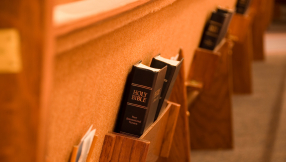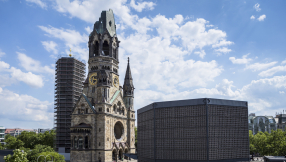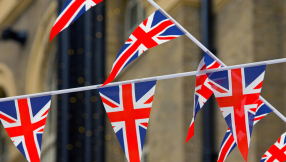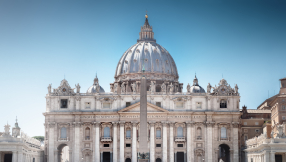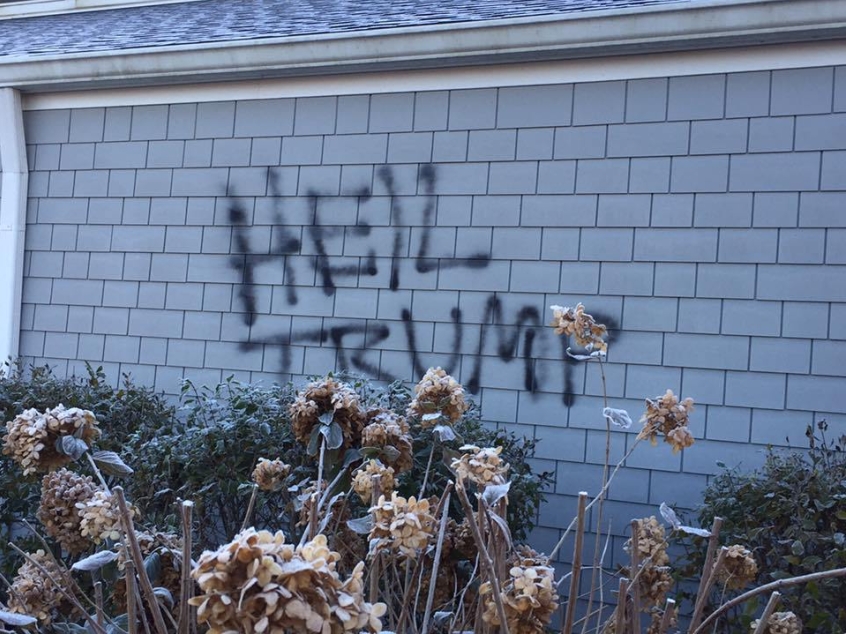
"Never Forget. Never Again."
These are words drummed into post-war generations coming to terms with the horrors inflicted by man on man in the Holocaust.
We are taught these words to ensure it really never does happen again.
At school in the 1970s, many of us were shown horrifying black-and-white newsreel footage of the liberation of the death camps, images of skeletal figures of the victims imprinted forever in our memories.
We learned of the gradual restrictions imposed on the liberties of Germany's Jews and how this culminated in the terror of the "final solution" with six million murdered, millions of these in gas ovens in death camps such as Auschwitz-Birkenau.
And surely we've all heard of the famous "First they came ..." poem by Pastor Martin Niemöller, who was calling out Germany's intellectual elite that rationalised support for Nazi purges.
My own great great aunt, Eleanor Rathbone, was a prominent MP from a family of Unitarians, who was honoured recently with a plaque at Hoop Lane Cemetery in Golders Green for her tireless if not always successful campaign to persuade Britain to admit more Jewish refugees. This year has seen a series of events marking the 70th anniversary of her death.
Churches have for decades been coming to terms with the consequences of centuries of Christian antisemitism.
As long ago as 1965, in its seminal document Nostra Aetate, the Catholic Church redefined its relationship with the Jewish people, denounced antisemitism and rejected "every persecution against any man".
Just this week, the Archbishop of Canterbury Justin Welby and Chief Rabbi Ephraim Mirvis launched a new Jewish-Christian dialogue project. Welby admitted: "The national church has to own its own history of intolerance and deep-seated anti-Semitism – and we have to own that history."
As leader of the Church of England, he said, he was very aware of this history.
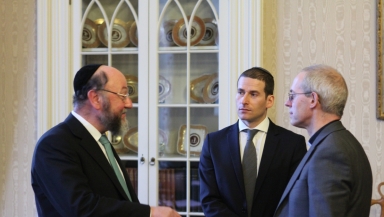
"I am more than ready to be answerable and held to account for both unwitting implicit anti-Semitism, and the wilful and cavalier use of language, historical analogy or political example, by members of the clergy or laity. It happens. We know it happens. It is excruciatingly painful to us when we see it and hear it and recognise it, and we try and deal with it sharply and severely."
So much important work has been done in this area, on both sides of the Atlantic.
Britain's Jews are still mourning the loss of Sir Sigmund Sternberg, who died recently aged 95. Deeply involved in the Council of Christians and Jews and its international counterpart, Sir Sigmund helped bring about the Vatican's recognition of Israel in 1992.
He became the first ever Jewish Papal Knight.
He also set up the Three Faiths Forum to bring together Muslims, Christians and Jews. Tomorrow in London, hundreds of young people will gather at a the forum's interfaith summit, coinciding with National Interfaith Week. The summit is an "interactive, youth-led space for people of all faiths and beliefs to connect, explore, and act, together."
Similar work of the kind done by Sir Sigi, as he was known, and more is going on, all the time, in the United States. Holocaust memorials and museums promote remembrance in Israel, London, Washington and elsewhere.
Surely, then, with all this, we will can never forget.
And remembering must mean not repeating the mistakes of past. Mustn't it?
So it was with a sense of disbelief I found myself writing yesterday a news story of soaring anti-Muslim hate crimes.
And that's just the 2015 figures. Does anyone dare to guess what the 2016 stats might tell us?
And then today, to my mounting sense of horror, was this story: 'Heil Trump' And 'Whites Only' Among Nazi-Style Slogans Appearing On US Churches.
Slogans like this were a hallmark of the rise of Nazism.
When I look back at that history, like many people, I imagine myself on the side of the resistance, doing the kinds of things Eleanor Rathbone did. The ignominy she endured for battling for an unpopular cause – admitting more Jewish refugees to Britain – was considerable. She made many enemies. But battle on she did. I like to think that in today's more enlightened world, a world where we all understand the importance of not forgetting, she would have had more success.
But the dreadful possibility now has to be faced. Maybe she wouldn't.
The theme of the next Holocaust Memorial Day is "How Can Life Go On?"
It is the responsibility of all of us to make sure it does. For everyone.










